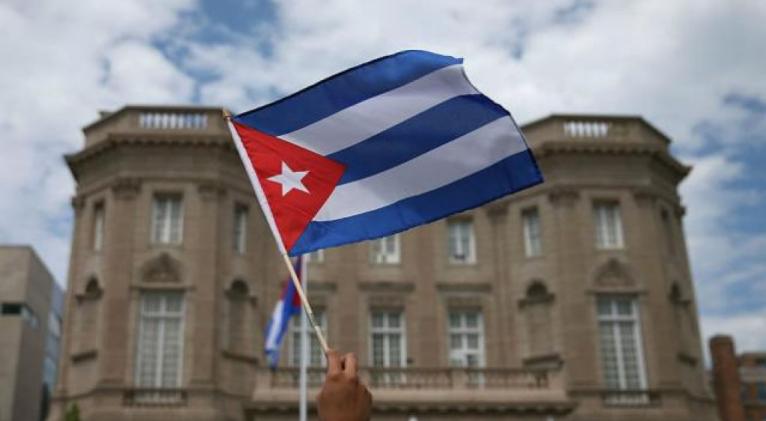America should strengthen, not abandon, relationship with Cuba
especiales

The drawdown in personnel from the American embassy in Havana and the Cuban embassy in Washington in the wake of mysterious attacks on U.S. officials is a setback to the efforts begun by President Obama to reverse a five-decade policy of isolation that failed to advance U.S. interests. But whether the perpetrators of the alleged attacks, be they rogue elements of Cuban security forces or perhaps a third country like Russia or North Korea, are successful in damaging ties between the United States and Cuba will depend on how the U.S. government and American businesses, travelers and civil society respond.
The Trump administration has said its withdrawal of personnel is not intended to impede engagement, but rather to safeguard the health and security of American diplomats. Although courageous State Department diplomats pleaded to maintain the U.S. mission at full strength, the drawdown is a step any administration would have taken in the face of a danger to American personnel that it could not identify or mitigate. The expulsion of Cuban diplomats, however, was a more contentious step, given that the United States does not necessarily believe the Cuban government authorized the alleged attacks.
How long it will be before the American and Cuban embassies are fully staffed again is impossible to predict. Both governments remain at a loss to explain the source and method of the alleged attacks, which have apparently caused hearing loss and brain injury. The FBI has not detected any devices inside or outside American diplomatic residences in Havana or been able to replicate in lab tests the effect of the suspected attacks.
Inevitably, diplomatic engagement will be hampered during this period. Cuban travel to the United States will also diminish as the understaffed U.S. embassy reduces consular services for Cubans seeking a U.S. visa. Still, other forms of engagement do not have to end. On the contrary, now is the time for advocates of greater ties to stop those in either country seeking to drag the relationship backward.
Most importantly, supporters of engagement should make sure the alleged attacks do not dampen U.S. travel to Cuba. Since the diplomatic opening nearly three years ago, travel to the island has soared. The low crime rate in Cuba makes it among the safest places in the world to visit, but the State Department is now discouraging all travel to the island. Secretary of State Rex Tillerson acknowledged that no U.S. private citizens have been affected by the alleged attacks, but since some apparently occurred at hotels where American citizens would stay, the State Department was required to issue a travel warning.
The cultural and natural splendor of Cuba should continue to motivate Americans to travel to the island. Even those skeptical of governmental engagement should feel comfortable visiting the island for cultural exchanges, as the hospitality industry is the sector with the largest entrepreneurial engagement and private employment. Private sector establishments, which employ about one-third of Cuban workers, depend on spending by foreign visitors to thrive. As Cuba recovers from Hurricane Irma, continued engagement has a humanitarian imperative as well.
Americans also have an incentive to visit Cuba before the Treasury Department issues new regulations governing travel there, as mandated by President Trump in June. The regulations are a few weeks overdue, and it is unclear when they will be issued. Treasury officials who oversee sanctions prefer to prioritize countries like Russia, Iran and North Korea, rather than proctor whether Americans step foot on a Caribbean beach.
Similarly, U.S. companies should not overreact and abandon the island. U.S. corporate leaders regularly complain about the challenges of navigating the bureaucratic and political thicket in Cuba. The travel warning and reduction in embassy commercial officers could cause some companies to delay or reconsider their Cuba plans. Savvy outfits, however, will look beyond the current diplomatic imbroglio and consider the first-mover advantage and long-term value of investing in Cuba. For its part, the Cuban government, which continues to signal its appetite for engagement with foreign companies, should expedite to the extent possible the approval of business petitions. The conclusion of a few high-profile deals could move other companies from the sidelines and beget more deals.
Finally, U.S. civil society, which has been instrumental to the process of normalization, should intensify engagement with their Cuban counterparts. Universities, sports leagues, cultural institutions, human rights groups, and research centers like the Roswell Park Cancer Institute, which is developing a lung cancer vaccine in collaboration with a Havana medical center, daily demonstrate how American engagement with Cuba enriches the lives of people in both countries.
The perpetrators of the alleged attacks on U.S. officials apparently wanted the U.S. and Cuban people to drift apart again. Whatever the origin of the illnesses afflicting U.S. diplomats, Cuban opponents of President Raul Castro’s opening to the United States will be pleased if Americans disengage from Cuba, and critics of normalization in the United States are cheering the renewed tensions. For the benefit of the Cuban people and Americans with a stake in the relationship with Cuba, it is important that the latest developments do not derail the historic reconciliation between the two countries.













Add new comment